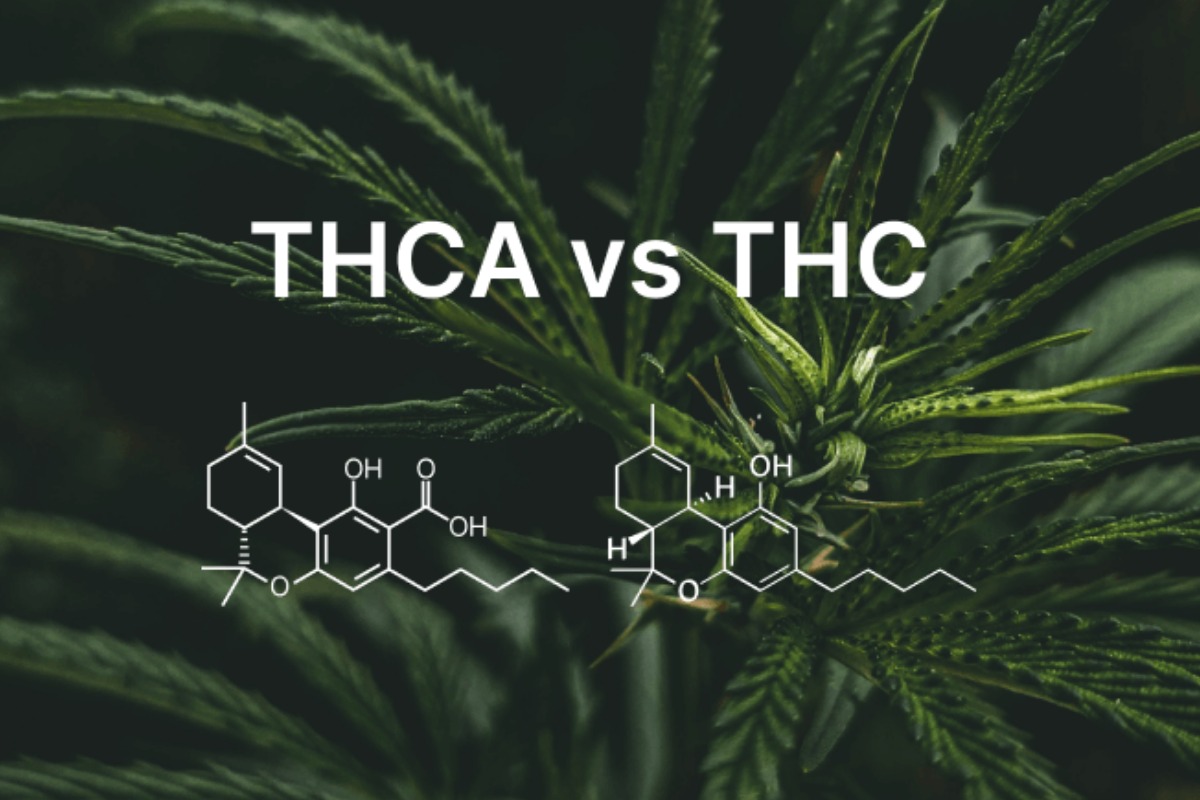From Plant to Potency: The Journey of THCA Transforming into THC
In the verdant landscape of cannabis cultivation and consumption, the transformation of THCA (Tetrahydrocannabinolic acid) into THC (Tetrahydrocannabinol) represents a fascinating journey from plant to potency. This process, underpinned by both natural and engineered mechanisms, not only highlights the complexity of cannabis chemistry but also underscores the nuanced interplay between cultivation, harvesting, and consumption methods that influence the ultimate effects experienced by users. This comprehensive exploration delves into the science behind this transformation, offering insights into how THCA vs THC is converted into the psychoactive THC, the implications for medicinal and recreational users, and the broader impact on the evolving cannabis industry.
THCA: The Precursor to Cannabis's Signature High
THCA is the raw, non-psychoactive cannabinoid found in abundance in live and freshly harvested cannabis plants. As the precursor to THC, it holds a pivotal role in the development of cannabis's psychoactive properties, yet on its own, it exhibits a unique profile of potential therapeutic benefits, including anti-inflammatory and neuroprotective effects.
The Therapeutic Potential of THCA
Despite its non-psychoactive status, THCA has garnered attention for its promising therapeutic applications. Emerging research suggests that THCA may offer a range of health benefits, from reducing inflammation and preventing nausea to potentially inhibiting cancer cell growth, making it a compound of significant interest in the realm of medical cannabis research.
The Decarboxylation Process: Activating THC
The conversion of THCA into THC is facilitated by decarboxylation, a chemical reaction triggered by heat. This process involves the removal of a carboxyl group from THCA, effectively converting it into the psychoactive THC and unlocking the characteristic high associated with cannabis use.
Decarboxylation: A Critical Step for Consumption
Understanding the decarboxylation process is crucial for both consumers aiming to achieve specific psychoactive effects and patients seeking the therapeutic benefits of THC. Proper decarboxylation, achieved through smoking, vaping, or baking cannabis, ensures the activation of THC, maximizing the potency and efficacy of cannabis products.
The Role of Cultivation and Harvesting in THCA to THC Transformation
The journey from THCA to THC is significantly influenced by cultivation practices and harvesting techniques. Factors such as light exposure, temperature, and the timing of the harvest can impact the levels of THCA in the plant and its potential to convert into THC, highlighting the importance of precise agricultural methods in producing high-quality cannabis.
Optimizing Conditions for Maximum Potency
Cannabis cultivators continually seek to optimize conditions to enhance the transformation of THCA into THC, aiming to achieve the highest levels of potency and desired effects. Innovations in cultivation technology and methodology play a crucial role in this endeavor, driving advancements in the cannabis industry and elevating the consumer experience.
Implications for Consumers and the Cannabis Industry
The transformation of THCA into THC has profound implications for both consumers and the cannabis industry. Understanding this process allows consumers to make informed decisions about their cannabis use, whether seeking the psychoactive effects of THC or the non-intoxicating benefits of THCA.
Navigating the Complex World of Cannabis Consumption
For consumers, navigating the complex world of cannabis consumption involves understanding the impact of decarboxylation and how different consumption methods influence the effects of THC. From smoking and vaping to edibles and tinctures, the choice of consumption method can significantly affect the onset, intensity, and duration of effects.
Conclusion: Embracing the Science of Cannabis
The journey of THCA transforming into THC encapsulates the intricate relationship between cannabis science and user experience. By delving into the mechanisms behind this transformation, we gain a deeper understanding of the plant's potential, from its therapeutic applications to its recreational appeal. As the cannabis industry continues to evolve, fueled by ongoing research and technological advancements, the exploration of cannabinoids like THCA and THC will remain at the forefront of unlocking cannabis's full potential, shaping the future of cannabis cultivation, product development, and consumption.


